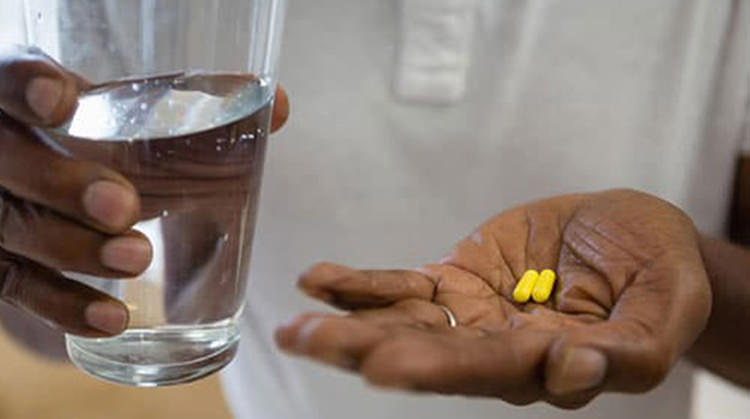Kidneys act as blood filters for the human body. Normally, kidneys filter approximately half a cup of blood every minute. During the filtration process, the kidneys remove wastes and extra water, resulting in urine. Sometimes, because of certain underlying kidney diseases, they fail to filter the blood correctly. This can lead to kidney failure. Read the full article from CBS Miami.
‘I Can’t Wait to Swim!’ | How a Kidney Transplant Changed the Possibilities for 4-Year-Old Stella
“She has so much more energy and is eating so much more. She is also moving and walking more than she ever did.”
Four-year-old Stella Allison has always loved telling jokes and playing dress up.
With energy that is contagious and a smile that lights up a room, her mom Kyley Barthlow says Stella has grown into a high-spirited and chatty child – but was born a real fighter.
Read the full story from Seattle Children’s.
Infliximab may lead to higher infection rate, no improvement in transplant outcomes
The use of infliximab in patients with a deceased donor kidney transplant led to increased infections and did not improve allograft survival, according to data presented at the American Transplant Congress.
“The intervention had no effect on allograft function or acute rejection,” Peter S. Heeger, MD, a professor of medicine and immunology at the Icahn School of Medicine at Mount Sinai Medical Center in New York, told Healio. “Unexpectedly, we observed higher rates of infection with the BK virus, a virus that can contribute to graft dysfunction and graft loss.”
Read the full article in Healio.
Diabetes in Kidney Transplant Recipients Ups Risk for Overall Graft Loss
Type 2 diabetes in kidney transplant recipients (KTRs) is associated with an increased risk for overall graft loss, with the increased risk due to death with a functioning graft, according to study findings presented at the 2022 American Transplant Congress (ATC 2022) in Boston, Massachusetts.
Vinayak Rohan, MD, of the Medical University of South Carolina in Charleston, and colleagues conducted a longitudinal study of 233,703 KTRs using 2002-2018 data from the Scientific Registry of Transplant Recipients. Read more in Renal & Urology News.
Living organ donations save lives. This is how you become a donor
(CNN) Samira Jafari is at home now resting from a surgery that saved a life — not her own, but her colleague’s.
The deputy managing editor of CNN’s investigations unit answered the request for employees to be tested to find a donor for Senior UN Correspondent Richard Roth, who needed a kidney transplant, and found that her blood and tissue was a match.
Read the full story from CNN Health.
Giving a kidney started with giving knowledge
Roxana Chicas, PhD, RN, a research professor in Emory’s Nell Hodgson Woodruff School of Nursing, rued her nontraditional academic path until a mentor reassured her: “The teacher always arrives when the student is ready.”
That advice about timing resonated last month as she prepared to donate a kidney to her mentor, professor and faculty colleague. Professor and biostatistician Vicki Stover Hertzberg, PhD, who directs the school’s Center for Data Science, had been waiting nine months for a transplant after being diagnosed with kidney failure.
The two professors’ personal relationship is only one aspect of their remarkable story.
Read the full story from Emory News Center.
Steps to Keep Your Transplanted Kidney
- Schedule regular healthcare visits
- Take all your medications every day and at the same time as instructed
- Discuss any medication concerns or side effects with your transplant team
- Eat healthy
- Get regular exercise
- Keep a healthy weight
- Ask how you can lower your chances for high blood pressure, diabetes, cancer, or infection Become an active member of your healthcare team
Read the full article from National Kidney Foundation here.
Incompatible Blood Types and Paired Exchange Programs
What blood types “match”?
Blood typing is the first blood test that will determine if your blood is compatible with the potential donor’s blood. If the donor’s blood type works with your blood type, the donor will take the next blood test (tissue typing).
Kidney donors must have a compatible blood type with the recipient. The Rh factor (+ or -) of blood does not matter in a transplant. Read more from the National Kidney Foundation.
Strangers Donating Kidneys: ‘Important Contributions’
News stories abound of altruistic individuals donating their kidneys to strangers. These donations are based on the principle that a person should be willing to donate a kidney with no knowledge of the recipient’s identity or medical or personal circumstances, and with agreement that the outcome of the transplantation may not be known. Read more in Medscape.
Does Timing Matter When Taking Anti-Rejection Medications for Your Transplanted Kidney or Heart?
Having an organ transplant can feel like a new lease on life!
You find that you can suddenly do more of the things that you enjoy. However, new recipients are sometimes overwhelmed with all the requirements of post-transplant living.
Read the full story on CareDx.com.




